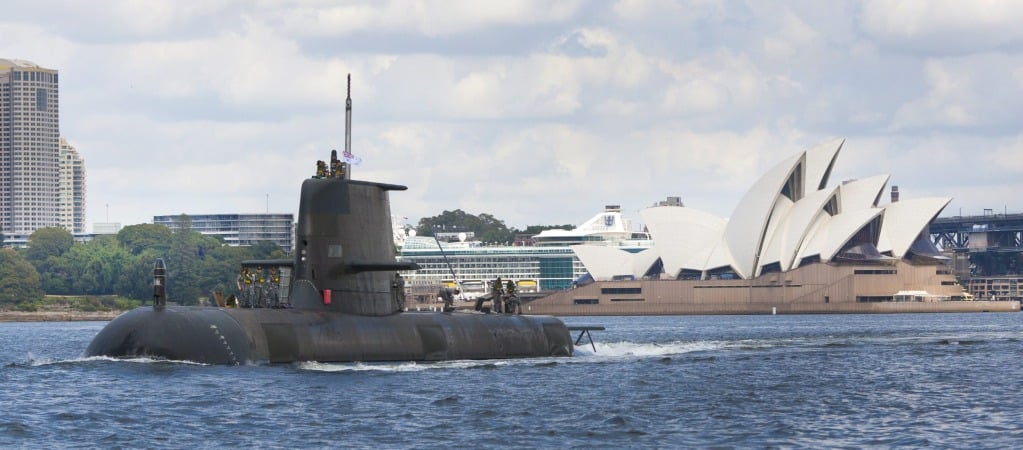
Australia needs “bigger, better submarines now, not two decades from now” to counter China’s “extreme bullying” of nations across the Indo-Pacific, former Prime Minister Tony Abbott said Friday.
Abbott, who was the prime minister from 2013 to 2015, added “the peril is not far off,” especially concerning Taiwan. During his meetings in Washington, he has been pressing for Canberra to buy a retiring Los Angeles-class nuclear-powered submarine for training and possibly additional attack submarines for operations until Australia can commission one of its own.
At an online event at the Wilson Center on Friday, he said if he were in London he would be making the same point on acquiring retiring Trafalgar-class submarines from the U.K. Royal Navy.
Abbott called the Australia, United Kingdom, United States [AUKUS] agreement “probably the biggest decision by any Australian government in decades.” He termed the agreement as complementary to others Canberra has, like the “Five Eyes” intelligence-sharing pact with Washington, London, Ottawa and Wellington, and the economic G-7.
But the public centerpiece of the agreement is Canberra acquiring the technology, but building a nuclear-powered submarine could take 20 years.
Later, he added, “the Chinese naval build-up is stupendous, absolutely stupendous,” putting Australia and other Indo-Pacific nations in a “daunting situation.” That “daunting situation” is also taking place on land with India skirmishing with Chinese forces over territorial claims in the Himalayas.
The “Quad [United States, Australia, Japan and India] has been created by Chinese bad behavior,” he said.
Chinese President Xi Jinping “has shown an appetite for risk-taking” in cracking down on pro-democracy advocates in Hong Kong, rising military threats and putting economic pressures on Taiwan.
In the case of Taiwan, Abbott said Xi “thinks he’s pushing against an open door” and no nation will come to Taipei’s defense.
Speaking in Taipei earlier this month, Abbott called on the democracies to show strong sTaiwan in the wake of China’s stepped-up military provocations. On its National Day, China sent 150 fighters and bombers into Taiwan’s air identification zone as a warning.
Official Chinese news agencies called Abbott “despicable and insane” for his “very undiplomatic rhetoric.”
At the Wilson Center event, Abbott said “Taiwan is the front line of freedom” and “China might up the ante” from incursions of aircraft and warships to invasion.
Abbott praised the Biden administration’s “rhetorical escalation” to defend Taiwan from Chinese attack.
“When dictators speak plainly, we need to take them seriously,” he said.
Abbott welcomed the stepped-up naval presence of the United Kingdom and France in the Indo-Pacific and Australia’s new arrangement with Japan to exercise its forces with Australian forces in Queensland as demonstrations of solidarity to counter Chinese ambitions.
He cited the updated agreement with Washington to send more Marines to Australia and also Canberra upgrading the port at Perth on its western coast to accommodate U.S. Navy ships.
The democracies need to make clear to Xi “any move on Taiwan would have grave consequences.”
Abbott noted in his opening remarks that Chinese threats go beyond military pressure and heavy investment in modernizing all its forces. “China has weaponized trade with Australia.” He estimated embargoes and high tariffs on products as diverse as steel and wine are costing Australians $20 billion annually.
But if China moved forcibly against Taiwan it could face major economic consequences as well since its leading trading partners include the United States, Japan and Australia, he said.
In addition to an increased American naval presence in the Indo-Pacific, Abbott said Washington’s re-engagement with the Trans Pacific Partnership trade agreement would show its economic commitment to the region. He described President Joseph Biden’s three telephone conversations with Xi as positive steps in de-escalating tensions and making clear to Beijing American interests.





